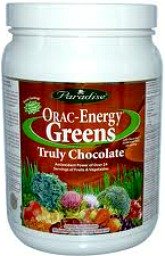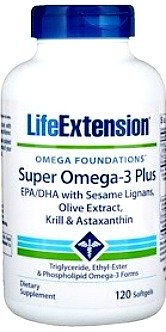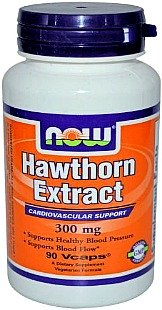How does the heart work: Basic structures and their function
Want to know how does the heart work? Good. It is very simple. Although the heart is basically just a pump, the way it works and the way it is built is a little bit more complex.
In order to explain its mode of action, I have divided its blueprint into several sections. This should help simplify the explanation.
Besides four chambers, two ventricles and two atriums, human heart has other basic structures which make this organ such an amazing creation of nature.
BASIC STRUCTURES OF THE HEART MUSCLE
FOUR HEART VALVES regulate the blood flow through the cardiac muscle. These valves are made of strong tissue and controlled by blood pressure changes within each heart chamber.
As one valve closes, the other one opens. Besides letting the blood flow forward, they also prevent the blood from flowing backward, when they are working properly.
CORONARY ARTERIES are part of separate circulatory system which fuels cardiac muscle, by providing oxygen and nutrients rich blood to the heart.
When they are clogged, the heart doesn't gets its fuel as it should. Because of this, it is important to know how does the heart work, in order to prevent blockades, coronary heart disease or heart attack.
SINOATRIAL NODE is primary pacemaker of the heart muscle. It is under control of nervous system and part of the brain known as medulla oblongata.
SA node sends electrical signals to the heart muscle and stimulates contractions of the atrial muscles, while regulating heart rate.
ATRIOVENTRICULAR NODE is secondary pacemaker of the heart. Electrical signal travels from the SA node to the AV node. AV node sends it through the bundle of his, down the bundle branches to the purkinje fibers which causes ventricules to contract.
Bundle of his, bundle branches and purkinje fibers are part of heart's conduction system through which the electrical signals travels thereby completing the circle.
RIGHT SIDE OF THE HEART
Right side of the heart is composed of right ventricle, right atrium, tricuspid valve and pulmonic valve.
This side of the heart receives deoxygenated blood from the body and sends it through the pulmonary arteries into the lungs where it's re-oxygenated.
LEFT SIDE OF THE HEART
Left side of the heart is composed of left ventricle, left atrium, mitral valve and aortic valve.
It receives oxygen rich blood from the lungs and pumps it through the aorta to the rest of the body. This cycle repeats over and over.
HOW DOES THE HEART WORK - HEART ENLARGEMENT
Left side of the heart can get enlarged in people with some kind of heart disease and in top level athletes, especially endurance athletes. However, some people have genetic predisposition towards heart enlargement.
For instance, my left atrium was 4 cm wider, while my left ventricule was 5,9 cm wider. Although I have genetic predosposition towards heart enlargment, heart disease made it even bigger.
However, with healthy diet and especially cardio exercises, I managed to improve the function and reduce the size of my heart muscle. On the other hand, my heart will always be a little bit bigger, due to my genetic blueprint.
HOW DOES THE HEART WORK - INFLUENTIAL FACTORS
Besides genetics, other factors such as hormones, nervous system reactions and stress, infections and immune system, cholesterol levels and body compositon all have an effect on the heart function and size.
First of all, if your immune system is weak, then some kind of infection can damage the valves. Damaged heart valves don't close properly which causes the blood to flow backward. We don't want that.
On the other hand, hormonal imbalance can lead to heart enlargement and weaken its function. Sometimes, hormonal imbalance is the main cause behind cardiac arrhythmias.
When it comes to nervous system reactions, chronic stress and anxiety can over stimulate natural pacemaker of the heart muscle, by sending irregular electrical signals to the sinoatrial node. This kind of mental state usually leads to heart palpitations but it is not life threatening.
Lastly but not least, high body fat percentage and elevated cholesterol levels can lead to coronary heart disease and blood clots. If blood vessels that supply the heart muscle with nutrient rich blood get clogged, the tissue will die off, due to ischemia.
In this case, even if all other parameters are in check, it won't matter since we can't revive or regenerate dead tissue. Because of this, your chances of needing heart transplant surgery in near or distant future, go up significantly.
So, knowing how does the heart work and keeping these tips in mind will help you avoid the surgery.
- Heart Healthy Diet: Simple Tips and Guidelines
- Learn everything you need to know about heart healthy diet and find the right one for you. Implement few simple tips for immediate benefits.
- Heart Healthy Foods: How to Get the Most from Them
- Heart healthy foods can improve cardiovascular system function. Foods good for the heart are bursting with vitamins, minerals and rejuvenating phytochemicals.
- Herbs for the Heart and Cardiovascular System
- You have heard for hawthorn and garlic but there are few other herbs for the heart which can help in treating heart disease, naturally.
- The Best Heart Health Supplements
- Besides fish oil, there are several heart health supplements which can be useful. This includes Coenzyme Q10, Salicin, vitamin D3 and few others.
- Heart Healthy Spices
- Although there are many heart healthy spices out there, each of them can help prevent and treat heart disease in its own way, thanks to different types of flavonoids in these heart spices.
- Stress and Heart Disease: How are They Connected
- Stress and heart disease are closely related. In order to decrease the risk of heart problems, we have to learn how to handle the stress and treat its consequences, if we are unable to avoid it.
- Cardio Exercises for the Heart and Cardiovascular System
- Cardio exercises are vital part of natural heart disease treatment. However, which kind of heart exercise you should preform, varies from person to person.
- Good vs Bad Cholesterol: How to Improve Cholesterol Values
- Good vs bad cholesterol conflict is somewhat misunderstood. There is no good or bad cholesterol but only high or unbalanced cholesterol.
- Good Fats vs Bad Fats: Nutritional Facts and Guidelines
- What is the real truth when it comes to good fats vs bad fats? How much dietary fats should you consume daily and what are the best food sources of healthy fats?
- High Blood Pressure Remedies
- High blood pressure remedies range from tips and lifestyle modification to herbs and supplements. However, the method that works for someone else, may not work for you.
- Normal Heart Rate: How is Regulated and Influential Factors
- Normal heart rate varies from person to person. Although, age affects resting heart rate, there are many other factors that can raise or decrease heart rate.
- How to Lose Fat: Overlooked Tips for Weight Loss
- How to lose fat is surely one of the most intriguing questions for so many people. However, the answer is very simple. Eat healthy foods, perform fat burning exercises and take care of your hormones.
- Hormones and Heart Disease Connection
- Don't neglect hormones and heart disease connection. If you want to treat or prevent heart disease you have to balance your hormones.
- Heart Disease and Immune System Connection
- Heart disease and immune system connection is often overlooked, while trying to improve cardiovascular system function. However, there are several things you can do to change this.
- Dental Health Heart Disease Connection: Facts and Tips
- Dental health heart disease connection is one of three overlooked factors, along with hormones and immune system. However, with smart and effective approach we can change this.
- Causes of Heart Disease
- There are many causes of heart disease and factors that can increase or decrease your risk for developing heart related problems. Check how to turn the tide in your favour.
- Symptoms of Heart Disease
- There are few main symptoms of heart disease. Find out which are they, how to recognize them as well as my personal experience with some of them.
- Diagnosis of Heart Disease
- Accurate diagnosis of heart disease is the first step toward recovery. You can't start with treatment before you know what kind of disease you have, obviously.
- Treatment for Heart Disease: Medications and Surgeries
- Standard treatment for heart disease consists of surgeries, medications and devices. Which one is right for you, depends on your condition.
- Heart Disease Blog
- This is a blog about natural remedies, personal stories, helpful herbs and supplements, workout program as well as other tips and facts which may help people faced with heart disease.
- Contact Me
- Ask questions and leave comments about this site here.
- About the Author of Heart Health Guide
- About the author of Heart-health-guide.com website.
- Heart Health Guide Sitemap
- This is sitemap of Heart Health Guide.com. If you want to get better overview of informations on this website, you can get it here.
Copyright © - Heart Health Guide - All Rights Reserved.



